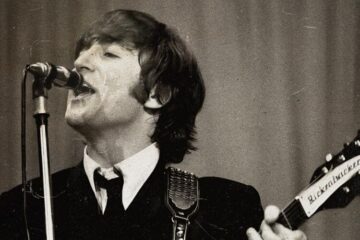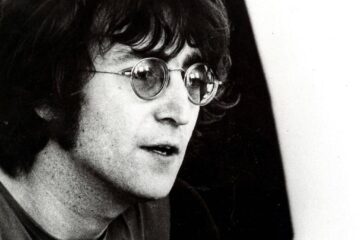In late February 1972, President Richard Nixon made a historic trip to China in an effort to ease long-term tensions and hostilities after years of diplomatic isolation. Not only did this visit strengthen Chinese-American relations, but it also served to encourage progress with the USSR.
I was driving Colonel Parker from Los Angeles to Palm Springs as we listened to a radio broadcast of this event, live via satellite from China. The Colonel’s mind went into overdrive as he learned about this new technology, which would allow people to hear and see someone around the world on radio and television. He blurted the first thing that came to his mind.
“What a great way for people everywhere to see and hear Elvis!” he said.
He knew a show by satellite could make entertainment history and Elvis was the perfect worldwide star to pull it off.
But how do you achieve something that has never been done before? I have been around lots of wealthy and influential people. Many of them come up with great ideas such as these, but 99.9 percent of them never get off the drawing board. If they do, there is a team of people doing the nuts and bolts to pull it off. Colonel Parker was a one-man show. He was among that .01 percent who worked tirelessly to realize his vision. This idea, he felt, could be very big… but it would need some more thought.
The Colonel insisted that no other artist ever ride on Elvis’s coattails
The world was changing, and so was Elvis. Elvis and Priscilla were separated and talk of a divorce was making headlines everywhere. He had been living under the age-old male belief that the husband could play around, but the wife was to stay home and remain faithful and raise their child. Despite Elvis’s infidelities, Priscilla had remained faithful for years. She’d finally had enough and told Elvis she was leaving him. He did not take it well, but he was about to meet the wonderful Linda Thompson, who was his main girlfriend for the next four years. Linda and I are friends to this day. Linda’s brother, Sam, had worked as a sheriff’s deputy before he became Elvis’s bodyguard in July 1976. Sam was a trusted friend of Elvis’s, and the two men spent hours singing gospel songs together on tour.
After Elvis’s passing, Sam attended law school and became a very successful lawyer and judge. Later he became a member of the Nevada Transmission Authority and the Public Utilities Commission. Sam was also a warden of a prison for a spell, which is ironic because he’s the sweetest guy in the world. He and his wife, Louise, are close friends of mine, and we stay in touch and travel together to Elvis-related events. After his legal career, Sam started a record label with music impresario David Foster, which they later sold to Warner Music. Linda and Sam were two of the few people in Elvis’s inner circle who did not do drugs and tried to help Elvis with his addiction. Sam believes, despite all of Elvis’s success, deep down he remained humble if not a bit insecure.
“Elvis used to sit up nights and wonder why he had become the King and someone else had not—someone like Jerry Lee. He really did ponder on this issue cosmically: ‘Why me?’” Sam said. “He knew he was talented, and he was good looking, and at the right place at the right time. But there were a lot of others out there too. He truly felt humbled by that. He never truly came to grips with it.”
The relationship between Colonel Parker and Management III Productions was growing strained. The Colonel was aware that Weintraub was using his power with the Elvis tour to promote his own artist, John Denver. The Colonel insisted that no other artist ever ride on Elvis’s coattails, and Jerry was really pushing the boundaries. The Colonel often spotted Weintraub stepping outside the offices and conducting business that had nothing to do with Elvis. Weintraub also invited other artists he was trying to sign to Elvis’s concerts to show off his relationship with the star.
In the world of show business, what Weintraub was doing was an accepted practice, but that did not fly with the Colonel. He was growing more agitated with the situation and Weintraub’s swelling ego.
When on tour, Jerry was often on the phone handling his personal affairs and not taking care of business. When their private jet was ready to leave, they’d have to wait while someone ran to get Jerry off the airport phone. The Colonel was also getting reports that Jerry was difficult. The Colonel waited until the tour was over to make his move.




